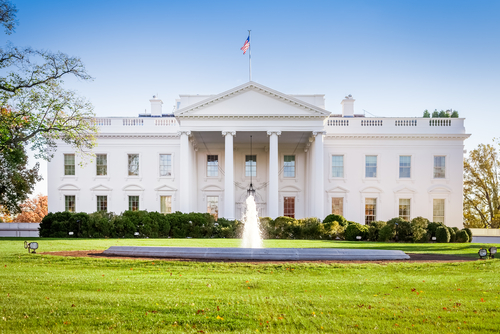Biden administration officials have clearly not decided on one messaging, as they have given conflicting responses to questions regarding whether the administration warned Iraq ahead of the U.S.’s retaliatory strikes against Iranian-backed terrorist groups which killed and wounded U.S. soldiers last month.
Amid criticism of the U.S. government’s handling of the operation, State Department deputy spokesman Vedant Patel said during a press briefing Monday that the administration did not let the Iraqi government know about the strikes before they were launched on Friday.
“Iraq, like every country in the region, understood there would be a response after the deaths of our soldiers. As for the specific response on Friday, there was not a pre-notification, we informed the Iraqis immediately after the strikes occurred,” he stated.
However, White House National Security Council spokesman John Kirby had a different account. During a press briefing after the U.S. launched the strikes on Friday, he told reporters that the administration “did inform the Iraqi government prior to the strikes occurring.”
An NBC News report the next day said that a senior administration official said that it “is not accurate” to say the Iraqi government were not informed even though he claimed they had not been given “a huge heads up.”
The Iraqi government had claimed that it received no prior notice of the attacks while claiming that the strikes caused civilian deaths and damage to infrastructure.
However, many lawmakers and defense experts have criticized the Biden administration for the retaliatory strikes, which came five days after the drone attack on U.S. soldiers in Jordan, which left three troops dead and 34 injured.
According to critics, the administration left too much time for the Iranian-backed militia groups to prepare for a U.S. attack.
By the time the strikes were carried out, most of the Iran-backed groups had reportedly moved a chunk of their operations out of their facilities in Iraq and Syria before the strikes.
Many, including Former Deputy Assistant Secretary of Defense for the Middle East Simone Ledeen, chalked the delayed response by the U.S. to President Joe Biden not wanting to strike Iran and its allies hard.
Speaking to the Daily Caller, Ledeen said, “I think it’s a feature of the policy of appeasement this administration has followed since 2021 – allowing both the [Islamic Revolutionary Guard Corp (IRGC)] and local Iranian-backed militias to leave and take as much as they can with them. This is a purposeful decision on the part of the Biden administration. While they must take action for domestic political reasons, they want to avoid causing real damage.”
Ledeen’s speculation makes sense, considering the Biden administration has said multiple times that it wants to avoid a war with Iran.
When asked a day after the attacks on U.S. soldiers on Jan. 28 if Biden is considering attacking the responsible militia groups in Iran-based facilities, Kirby responded, ”We are not looking for a war with Iran. We are not seeking a conflict with the regime in a military way. And as I said in — in the opening, we’re not — we’re not looking to escalate here.”
Amid the pressure on Biden to confront Iran more directly, National security adviser Jake Sullivan has said that the president will consider additional action against the Iranian-backed groups. It is, however, uncertain how far he is willing to go given that Sullivan still emphasized that “the president is not looking for a wider war in the Middle East.”
Jake Sullivan doesn’t rule out US strikes inside Iran but insists Biden ‘not looking to get into a war’ https://t.co/ygcdLt0Sg4
— Fox News (@FoxNews) February 4, 2024






